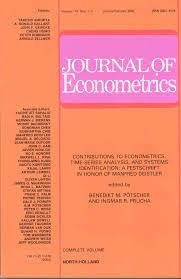
Boswijk, H., Cavaliere, G., Rahbek, A. and Taylor, A. (2016). Inference on co-integration parameters in heteroskedastic vector autoregressions Journal of Econometrics, 192(1):64--85.
-
Affiliated author
-
Publication year2016
-
JournalJournal of Econometrics
We consider estimation and hypothesis testing on the coefficients of the co-integrating relations and the adjustment coefficients in vector autoregressions driven by shocks which display both conditional and unconditional heteroskedasticity of a quite general and unknown form. We show that the conventional results in Johansen (1996) for the maximum likelihood estimators and associated likelihood ratio tests derived under homoskedasticity do not in general hold under heteroskedasticity. As a result, standard confidence intervals and hypothesis tests on these coefficients are potentially unreliable. Solutions based on Wald tests (using a 'sandwich' estimator of the variance matrix) and on the use of the wild bootstrap are discussed. These do not require the practitioner to specify a parametric model for volatility. We establish the conditions under which these methods are asymptotically valid. A Monte Carlo simulation study demonstrates that significant improvements in finite sample size can be obtained by the bootstrap over the corresponding asymptotic tests in both heteroskedastic and homoskedastic environments. An application to the term structure of interest rates in the US illustrates the difference between standard and bootstrap inferences regarding hypotheses on the co-integrating vectors and adjustment coefficients.